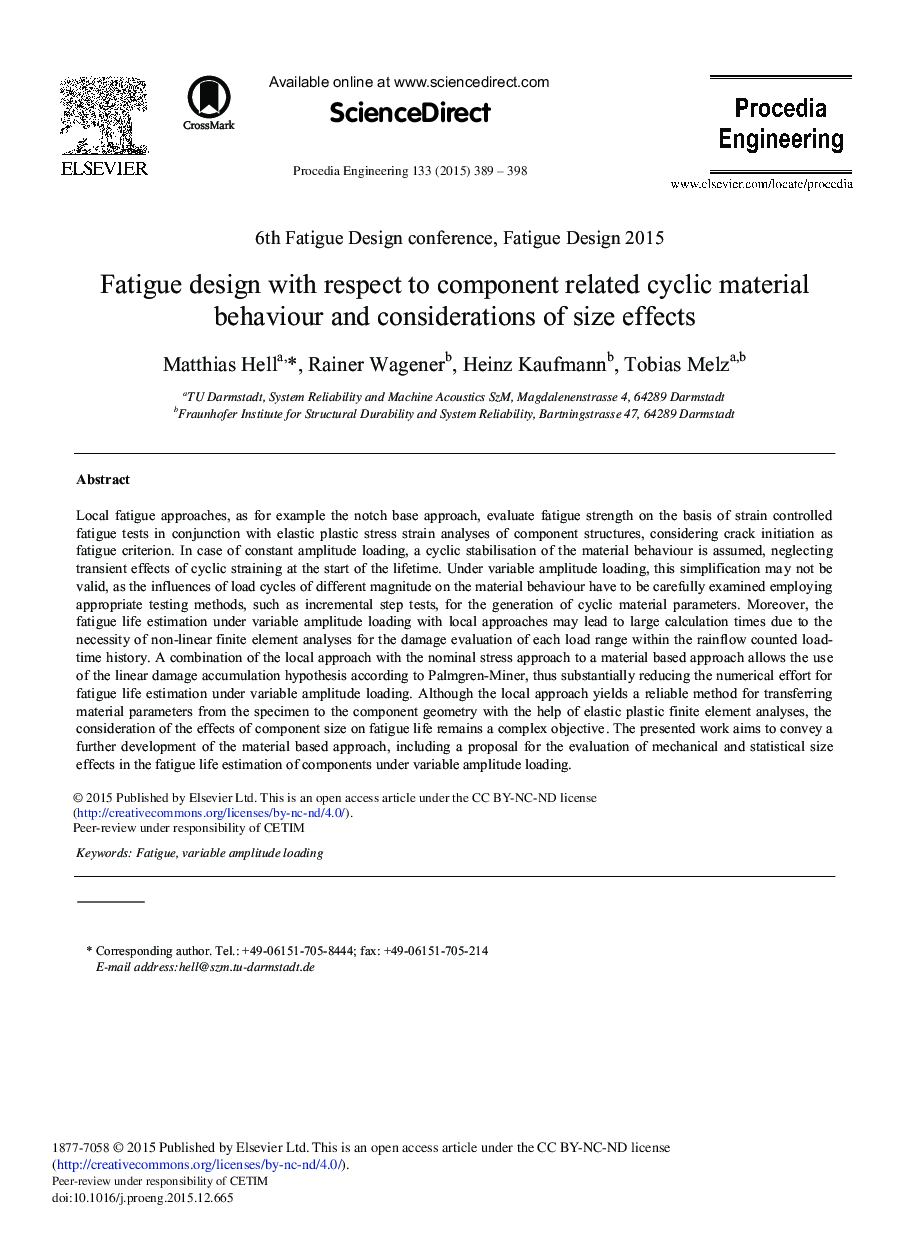| Article ID | Journal | Published Year | Pages | File Type |
|---|---|---|---|---|
| 853949 | Procedia Engineering | 2015 | 10 Pages |
Local fatigue approaches, as for example the notch base approach, evaluate fatigue strength on the basis of strain controlled fatigue tests in conjunction with elastic plastic stress strain analyses of component structures, considering crack initiation as fatigue criterion. In case of constant amplitude loading, a cyclic stabilisation of the material behaviour is assumed, neglecting transient effects of cyclic straining at the start of the lifetime. Under variable amplitude loading, this simplification may not be valid, as the influences of load cycles of different magnitude on the material behaviour have to be carefully examined employing appropriate testing methods, such as incremental step tests, for the generation of cyclic material parameters. Moreover, the fatigue life estimation under variable amplitude loading with local approaches may lead to large calculation times due to the necessity of non-linear finite element analyses for the damage evaluation of each load range within the rainflow counted load-time history. A combination of the local approach with the nominal stress approach to a material based approach allows the use of the linear damage accumulation hypothesis according to Palmgren-Miner, thus substantially reducing the numerical effort for fatigue life estimation under variable amplitude loading. Although the local approach yields a reliable method for transferring material parameters from the specimen to the component geometry with the help of elastic plastic finite element analyses, the consideration of the effects of component size on fatigue life remains a complex objective. The presented work aims to convey a further development of the material based approach, including a proposal for the evaluation of mechanical and statistical size effects in the fatigue life estimation of components under variable amplitude loading.
